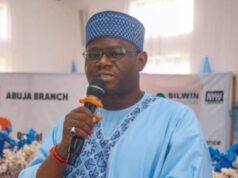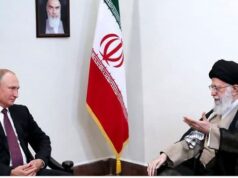
One funny thing about Nigerians is the fact that most of them are highly emotional and sentimental when it comes to public discourse on any national issue. Their idea of democracy is strewn around what they choose to believe, and worse, would want everyone to accept their beliefs. They would go to any length to paint those who hold contrary views black in a clear abuse of democratic norms and practices..
Like the WhatsApp group I belong to; a seemingly intellectual group where almost everyone condemn the former Governor of Kogi State, Alhaji Yahaya Bello, accusing him of being a thief, based on the words of the Economic and Financial Crime Commission (EFCC).
Even as intellectually based as the group is (mainly veteran journalists and legal practitioners, administrators, etc), my attempt to retionalise the circumstances of the issues at stake between the two combatants was attacked and I was branded “blackleg.”
One of them even said that I was supporting Yahaya Bello because he had bribed me with “Ghana-must-go” (huge amount of money).
We have been following the hide-and-seek game which Yahaya Bello and EFCC have been playing in the past couple of weeks. Of course, no one disputes the fact that being a Governor for eight years, Yahaya Bello has questions to answer on the issue of propriety and otherwise of his government.
Though, while the issue in discourse bothers on propriety and otherwise of it, the methodology rolled out by the EFCC to address it or to enforce it looks suspect, from the point of view of it’s ordinary. The legal part of it may be far different.
On the ordinary part of it, the following points present themselves for the impartial analysts to decipher:
1. EFCC first charged Yahaya Bello and others for money laundering amounting to over $80 billion, allegedly committed sometime in 2015, before he assumed office as Governor in 2016. Everybody knows that Yahaya Bello was into transport and estate businesses before he became governor, and was therefore dealing in currencies, whether legitimately or otherwise.
2. EFCC later changed the date to 2016, obviously to fit into the arrangement to rope in the former Governor.
3. Suddenly, EFCC came up with another charge last week that Yahaya Bello stole over $800,000 to pay his children school fees
4. That the school fees were paid by one Ali Bello, not Yahaya Bello (this one has serious legal implications). There doesn’t seem to be enough evidence that the money was from the coffers of Kogi state government.
5. The current governor, Ahmed Usman Ododo, has since said that there’s no money missing in the government pulse.
6. The question is: “Is Yahaya Bello, who was alleged to have laundered billion of dollars in 2015 or 2016 now so poor that he could not afford mere $800,000 to pay his children school fees?
As a matter of fact, if it is proved that what the former Governor for eight years stole was $800,000, I will personally flog him (if I have my way) for being so naive even in stealing. How would he steal such a paltry amount when a female minister who was barely four months in office stole billions of dollars? When other Governors are sending their children to foreign countries where they pay billions of dollars as school fees? When others are sending their girlfriends to overseas for holidays with billion of dollars within weeks?
I was flowing with EFCC before they began to change goal poles, creating a clear picture of witch-hunting to bring down Yahaya Bello by ALL means.
I want to make it clear that Yahaya Bello does not know me from Adam. We have never met one-on-one and I’m not begging the issue here.
However, I am not in anyway quarreling with those who simply want to crusify him for one reason or the other.
However, as a public commentator, I have my democratic and fundamental human right not to follow the bandwagon of Yahaya Bello’s haters, and doing so without being seen as blackleg and or beneficiary of any kind of largesse…except if we want to turn all Nigerians into one lane of the road.







Your point of view caught my eye and was very interesting. Thanks. I have a question for you.
Can you be more specific about the content of your article? After reading it, I still have some doubts. Hope you can help me.
I don’t think the title of your article matches the content lol. Just kidding, mainly because I had some doubts after reading the article.
Your point of view caught my eye and was very interesting. Thanks. I have a question for you.